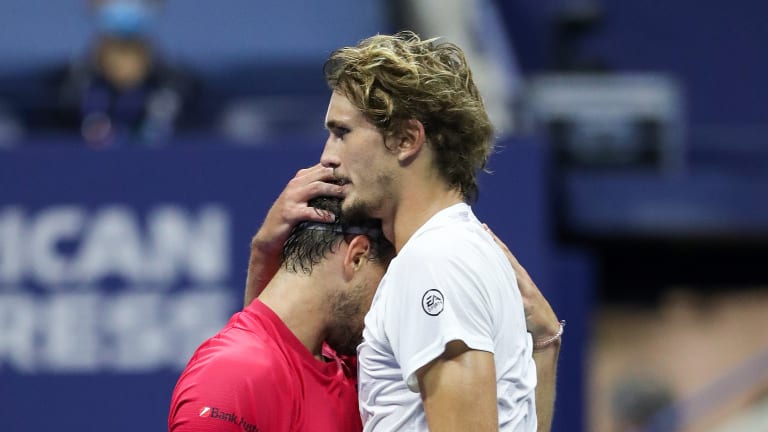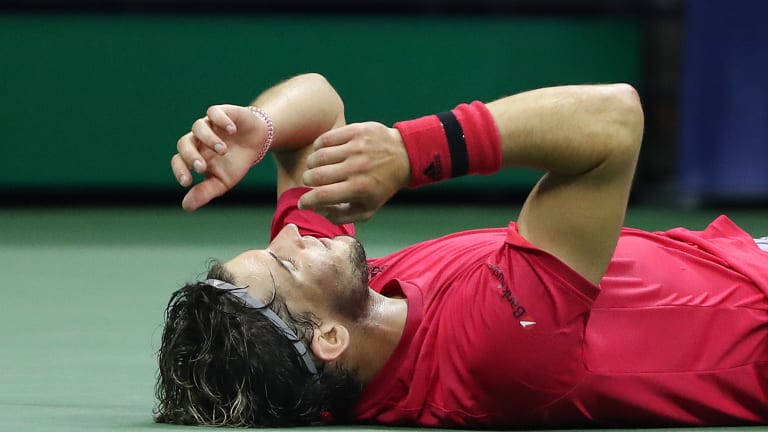US Open
2020 Top Matches, No. 2: Thiem outlasts Zverev on high-wire at US Open
By Dec 10, 2020US Open
Coco Gauff led the way, but it was a wildly successful US Open for American tennis at large
By Sep 13, 2023US Open
Daniil Medvedev was stubborn to a fault at the US Open, but still came away a winner
By Sep 13, 2023US Open
With the Grand Slam season in the books, what's the state of the ATP Tour in 2023?
By Sep 12, 2023US Open
Four Grand Slam winners, five storylines: The state of the WTA in 2023
By Sep 11, 2023US Open
Novak Djokovic put on one of his most impressive physical and tactical performances to win a 24th Grand Slam title
By Sep 11, 2023US Open
Novak Djokovic wins the US Open for his 24th Grand Slam title by beating Daniil Medvedev
By Sep 11, 2023US Open
Novak Djokovic has won 24 Grand Slam titles. Here is a look at each one
By Sep 11, 2023US Open
Djokovic celebrates No. 24 with a tribute to Kobe Bryant, who wore that number and became a friend
By Sep 11, 2023US Open
Novak Djokovic's US Open title gives him 24 Grand Slam titles. No one in tennis history has won more
By Sep 11, 2023US Open
2020 Top Matches, No. 2: Thiem outlasts Zverev on high-wire at US Open
There were both dull and head-scratching moments, but they were largely forgotten as the final Flushing Meadows showdown wound to its painfully tense final act.
Published Dec 10, 2020
Advertising

2020 Top Matches, No. 2: Thiem outlasts Zverev on high-wire at US Open
© Getty Images
Advertising

2020 Top Matches, No. 2: Thiem outlasts Zverev on high-wire at US Open
© Getty Images